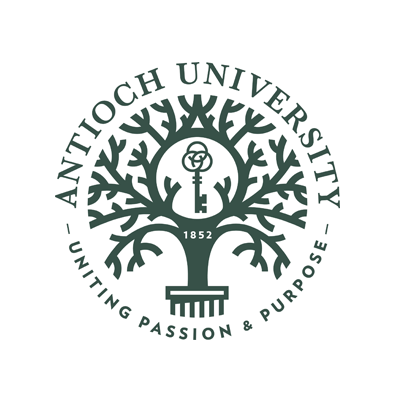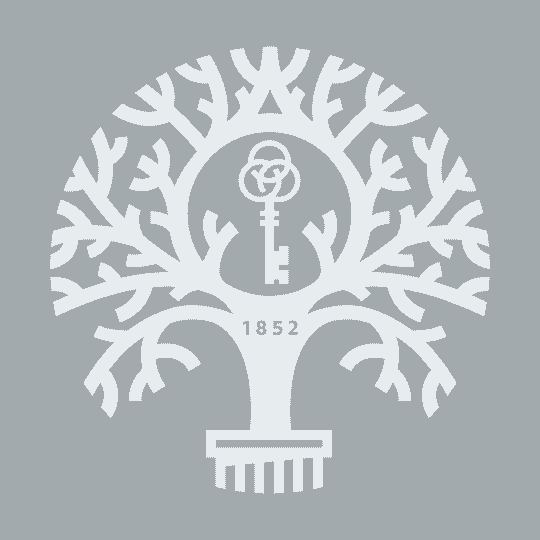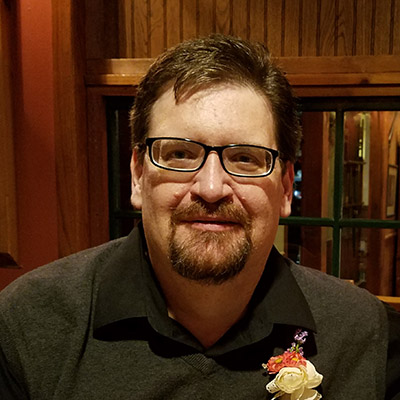Master of Arts
Clinical Mental Health Counseling (Online)
Counsel others to cope with life’s challenges
Antioch University’s CACREP-accredited Master’s in Clinical Mental Health Counseling (CMHC) program accepts students from all undergraduate degrees looking to learn how to make a positive impact on those who need help the most. The program prepares you to work as a professional counselor to promote mental health, well-being, and social justice for a diverse, multicultural, and global community.
Program Overview
The Clinical Mental Health Counseling program includes online courses, intensive face-to-face clinical learning (either virtual or in person), and experiential learning in fieldwork focused on the development of your professional identity. Our faculty encourages an active, thorough, and continued examination of your development in the role of a professional counselor.
This CACREP-accredited counselor education program, with a specialty area in clinical mental health counseling, trains students in eight (8) core areas:
- professional counseling orientation and ethical practice
- social and cultural diversity
- human growth and development
- career development
- counseling and helping relationships
- group counseling and group work
- assessment and testing
- research and program evaluation
This Clinical Mental Health Counseling (CMHC) program is offered through Antioch University’s New England campus in Keene, NH. Students can take courses in one of two deliveries: online with two-week-long intensive residencies or weekend low-residency with classes at the Keene, NH campus.
Degree Requirements
Program Length
The CMHC program is designed to be a full-time program, with students entering in the spring, summer, or fall semester, and typically takes students three to three and a half (3-3.5) years to complete if attending full-time.
Students who desire to take their coursework part-time can anticipate approximately four to five (4-5) years to complete the program. Students should expect to spend approximately nine hours per week on each course, in addition to 20 hours a week onsite at a clinical setting in your area when practicum and internships begin.
Students must pass a candidacy review before being authorized to begin practicum. We encourage you to plan your life carefully to accommodate the increased investment of time and energy in your professional education.
Degree Requirements
The Master of Arts in Clinical Mental Health Counseling (CMHC) consists of:
- Intensive face-to-face clinical learning (virtual or in-person)
- Core Courses (14 courses @ 3 credits = 42 credits)
- Practicum & Internships (3 semesters @ 3 credits = 9 credits; Practicum min.100 hrs; Internship 600 hrs; if students live in states with licensure requirements that exceed 600 hours, the program can accommodate that need)
- Electives (Choose 3 courses @ 3 credits = 9 credits)
Additional Program Details
Practicum introduces students to work in the field with a minimum of 100 hours of service at a clinical site, including a minimum of 40 hours working directly with clients. You learn the policy of the agency and the roles of the mental health counselor. You spend approximately 7 to 10 hours a week in practicum for at least one semester. Before beginning, practicum students must pass a candidacy review assessing their readiness to begin supervised fieldwork.
Following practicum, there are two internship semesters (three if students live in states with higher licensure requirements). These may continue at the same site as the practicum or take place at a new site. You spend approximately 20 hours a week at your clinical site and provide approximately 300 hours of service each semester, with a minimum of 120 hours of direct service to clients during each of these internship semesters. State requirements for pre-degree internship hours vary. Review your state requirements for more information.
There are many possible positions at community agencies, residential facilities, college counseling centers, and city/state social service agencies. The Clinical Director and the Practicum and Internship Coordinator will assist you in the process of matching your interests with potential sites in the community. Students are responsible for securing their own internship and for transportation to and from the site.
- Ethical Practice: Students will demonstrate principles and standards of professional ethics in counseling and ethical decision-making informed by social justice.
- Social And Cultural Diversity: Identify strategies needed to address institutional and social barriers that impede access, equity, well-being, and success for clients.
- Human Growth and Development: Students will demonstrate knowledge of lifespan development and the capacity to integrate knowledge of developmental theory into practice.
- Career Development: Identify career development strategies that incorporate a focus on social justice and advocacy.
- Counseling and Helping Relationships: Demonstrate an understanding of theories of counseling and development of case conceptualizations and treatment plans that are underpinned by social justice
- Group Counseling and Group Work: Integrate into their practice of MHC the awareness of the influence of social and cultural contexts on groups
- Assessment and Testing: Students will demonstrate a broad understanding of different types of assessments, the selection and use of assessment tools, client assessment and diagnosis, trauma assessment, and the assessment of self-inflicted harm and danger to others.
- Research and Program Evaluation: Demonstrate and apply their professional identity as a clinical mental health counselor through an individual philosophy of practice grounded in critical analysis and research and interpretation.
- Clinical Mental Health Counseling Specialty Area: Clinical Mental Health Counseling students will demonstrate an understanding of foundational knowledge, demonstration of competence in clinical mental health practice, knowledge of social justice issues, and a focus on wellness.
- Professional Dispositions: From admission through exit, students will demonstrate the attitudes, characteristics, and behaviors defined by the program as characteristic of exemplar counseling professionals.
The Bureau of Labor Statistics projects a strong need for mental health counselors. Counseling is projected as one of the faster growing mental health professions — increasing over the next 7-10 years.
Graduates of the CMHC Program will have the knowledge, skills, and attitudes required to function as a professional clinical mental health counselor. They will be prepared for employment in a variety of settings and able to meet certification and licensure standards as mental health counselors through education in a CACREP-accredited program.
Faculty Spotlights

Laura Dunson Caputo
Adjunct Faculty

Syntia Santos Dietz, PhD
Associate Professor

Ashley Hartman
Adjunct Professor

Ernie Zullo, PhD
Assistant Professor

Start your Antioch Journey
Take your next step – talk to our admissions team to find the right program for you.


